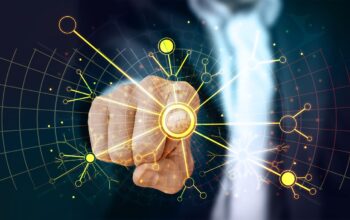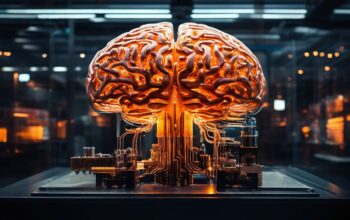China accelerates pace of AI development – but struggles with restrictions
2025 is a year of dramatic shifts in artificial intelligence—and China is once again playing a major role. The country is investing billions in developing its own AI chips, developing futuristic weapons systems, and looking for ways to circumvent U.S. restrictions on technology exports. All this is happening in the context of geopolitical tensions that are no longer just playing out in cyberspace but also in the physical world.
AI drones with their own "brain"
One of the most discussed topics is the project codenamed Jiu Tian – an ambitious initiative by the Chinese military, which is developing a so-called “drone mothership”. This large unmanned aerial vehicle is supposed to be able to launch up to 100 smaller drones controlled by artificial intelligence, which communicate with each other, coordinate and adapt to changing conditions in real time. The goal is to gain a decisive advantage on the modern battlefield, where the speed of information processing will be as important as the weapons themselves.
Such a system significantly exceeds the common understanding of military drones - it is more of an autonomous swarm with a collective "brain" than individual machines controlled remotely.

China's path to chip independence
However, the key weakness of China's AI ecosystem is powerful chips, which are essential for training large language models, driving autonomous cars, or military algorithms. After the introduction of US export bans, Chinese companies such as Huawei and Alibaba lost direct access to chips from Nvidia and AMD.
US authorities recently estimated that Huawei will only be able to produce around 200,000 AI chips in 2025, which is far below China's domestic needs. Nevertheless, the performance gap between Chinese and American chips is narrowing - currently the US's technological lead is estimated to be "only" 3 to 6 months.
Chinese detours: suitcases full of disks and rented servers
Chinese AI companies are dealing with constraints in creative — sometimes bizarre — ways. One technique involves physically transporting tens of terabytes of training data abroad (for example, to Malaysia), where companies then rent hundreds of servers with Nvidia H100 chips remotely. The models are trained outside of Chinese territory, thus circumventing the ban on exporting the technology.
Xpeng: AI chip from the workshop of an electric car manufacturer
Interesting developments are also coming from the field of civilian technology. Chinese electric car manufacturer Xpeng introduced its own powerful chip called Turing AI, which is expected to achieve a performance of up to 2,200 TOPS – surpassing Nvidia Orin-X. This chip is expected to be used not only in Xpeng vehicles, but also in Volkswagen models manufactured directly in China.
It is a clear signal that China's tech sector is starting to find its own wayhow to compete with the Western giants.

AI and social control
But AI in China is not just a tool for development – it is also an object of scrutiny. During the annual college entrance exams (the so-called gaokao) Chinese companies like Tencent and ByteDance have temporarily disabled AI features in their appsto prevent fraud. This mainly concerns photo recognition, AI Q&A tools, and document scanning.
It shows that AI is not only a tool for progress in China, but also an object of central regulationwhich directly affects everyday life.
China as an AI superpower – but behind its own wall
While many countries are building on international cooperation in the development of artificial intelligence, China is increasingly moving away from on the path to technological self-sufficiency. The development of its own chips, cloud, language models and operating systems is not just a manifestation of ambition, but a necessity arising from sanctions and restrictions. However, this “digital protectionism” also increases the risk that China will remain outside key standardization processes and technology alliances that will shape the future of AI globally.
International conference in Hangzhou as a signal of openness?
Despite its strong inward orientation, China is still sending signals that it does not want to completely cut itself off from the global AI discourse. In June, the city of Hangzhou hosted a global AI conference, where leading Chinese and foreign scientists, including Nobel laureates, spoke. Autonomous systems, the ethics of machine learning, and the risks of generative AI were discussed. The question remains, however, whether this is a genuine interest in cooperation – or rather a formal gesture to strengthen the country's reputation as a technological powerhouse.
China's AI between innovation and isolation
China's investment in AI is growing steadily, and the technological gap between it and the West is narrowing. But at the same time, geopolitical isolation is growing - development is increasingly dependent on domestic industry, circumvention of bans and autonomous solutions.
The future of AI in China will not just be about algorithms and chips – it will also be about politics, diplomacy, and the global balance of power.



